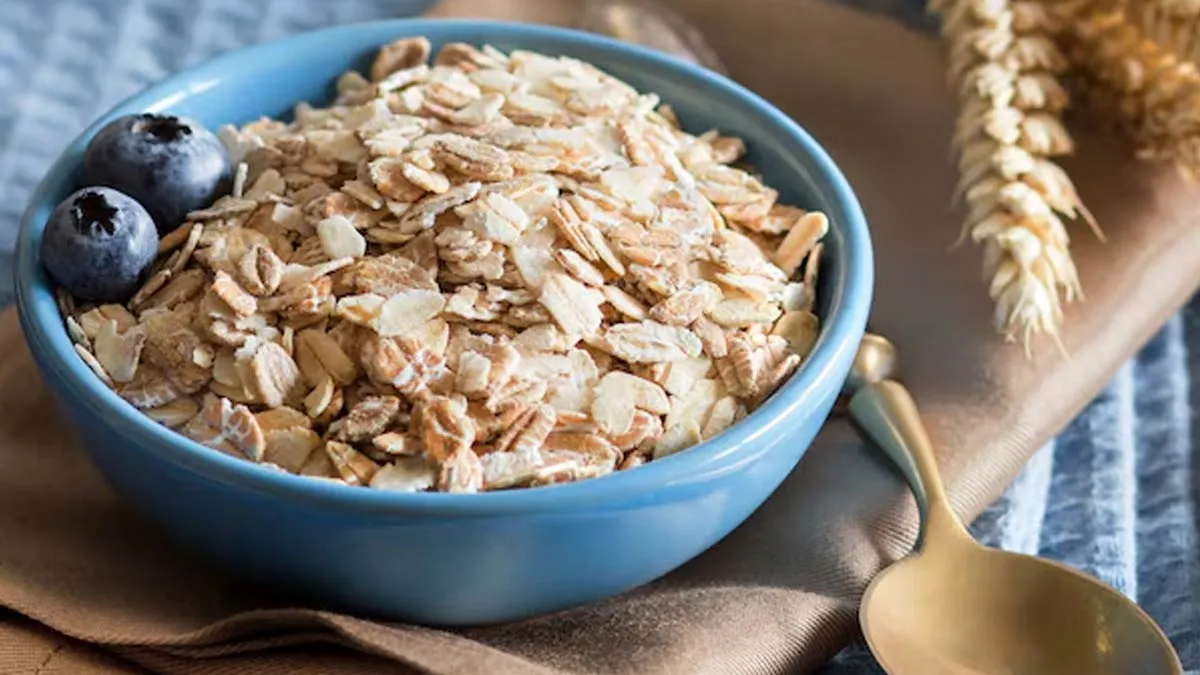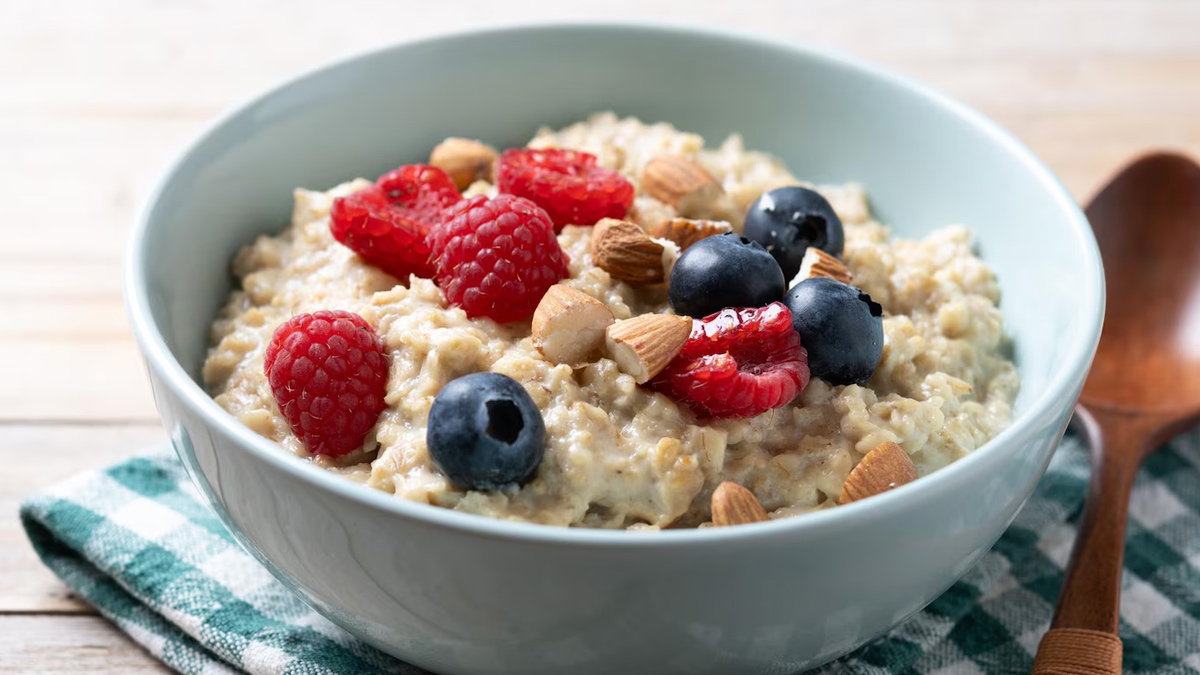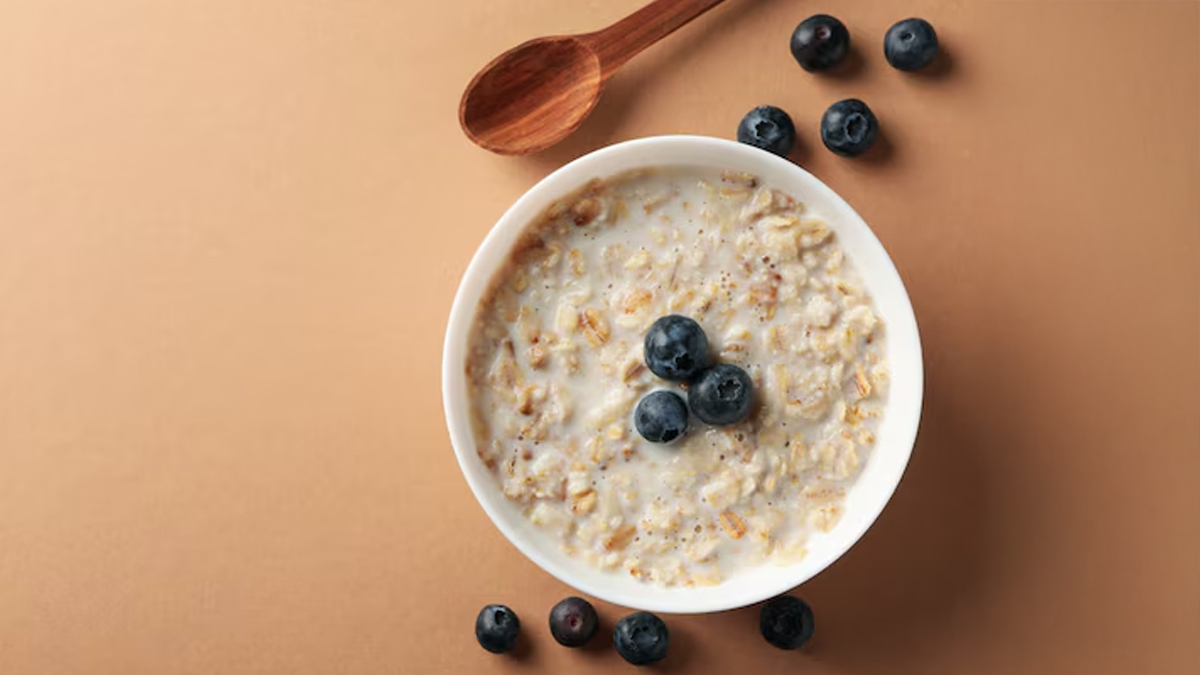
Oats are a fibre-rich food highly recommended for their health benefits. They contain beta-glucan, a type of soluble fibre known to help lower blood sugar and cholesterol levels, thereby reducing the risk of heart disease and diabetes.
Table of Content:-
Oats can be made using either milk or water. Though milk increases creaminess and enhances the nutrient content, water provides a less thick consistency and decreases the possibility of the mixture boiling over. But for others who love the creamy texture provided by milk but are lactose intolerant, Silky Mahajan, Dietitian/Nutritionist, Consult on Practo, Bengaluru, presents some options and discusses the best method of preparing oats.
Also Read: Whole Milk Or Low-Fat Milk: Which Is Good For IBS Patients?
What Is Lactose Intolerance?

Lactose intolerance is a digestive condition where the body has difficulty digesting lactose, a sugar found in milk and milk products. This happens because the body doesn't produce enough lactase, the enzyme that breaks down lactose.
Symptoms can include abdominal pain, bloating, gas, and diarrhoea, usually occurring within 30 minutes to 2 hours after consuming lactose.
According to StatPearls Publishing, 65% of the world's population is lactose intolerant, with the condition more common in adolescents and young adults and rare in children younger than five.
Health Benefits Of Oats

When it comes to our digestive health, experts recommend increasing our fibre intake. Fibre, particularly dietary fibre, is a type of carbohydrate that the body cannot digest. It is known to add bulk to stool, absorbing water and softening waste, which promotes easier and more regular bowel movements and prevents constipation.
Oats are a rich source of fibre, specifically the soluble form that enhances digestion by adding bulk to stool. This facilitates smoother and more frequent bowel actions and prevents constipation.
Apart from digestion, oats also contribute to heart health by reducing Low-Density Lipoprotein (LDL) or 'bad' cholesterol and regulating blood sugar levels, making oats useful for individuals with diabetes or those at risk.
Full of antioxidants, vitamins, and minerals such as manganese, phosphorus, magnesium, and iron, oats improve overall health and well-being. They may also make you feel full and aid in weight management by making you feel satiated for longer.
How To Make Oats If You Are Lactose Intolerant

Mahajan recommends preparing oats using dairy-free options like oat milk, soy milk, or coconut milk, which give a creamy texture without dairy. Other milk options like almond, cashew, hemp, or rice milk also work well, catering to different tastes and nutritional needs.
“To make oats easier to digest, soak them overnight in your chosen dairy-free milk. This softens the oats and may help reduce substances that can upset your stomach,” she says, adding that rolled oats are generally gentle on the stomach because of how they are processed, but some people may find steel-cut or quick oats better, depending on their sensitivity.
You can also add healthy and easily digestible ingredients that can improve flavour and digestion. She suggests mixing in cooked fruits like berries and bananas, a small amount of nuts or seeds for healthy fats, and spices like cinnamon, which can aid digestion.
Also Read: Food Poisoning Or Lactose Intolerance: How To Know What Is Causing Your Stomach Pain
However, if you still experience stomach irritation after eating oats, it could mean you're sensitive to oats themselves, their fibre content, or other ingredients. “Sometimes, processed oat products may have added ingredients or gluten, which can cause issues. Listening to your body and consulting a healthcare professional or dietitian is key to understanding your specific needs.”
Conclusion
“For those with lactose intolerance, it’s essential to avoid all dairy products, carefully read food labels for hidden lactose, and choose lactose-free options,” emphasises Silky Mahajan, concluding that paying attention to your body's reactions and making informed choices helps maintain a healthy, comfortable diet.
Also watch this video
How we keep this article up to date:
We work with experts and keep a close eye on the latest in health and wellness. Whenever there is a new research or helpful information, we update our articles with accurate and useful advice.
Current Version
